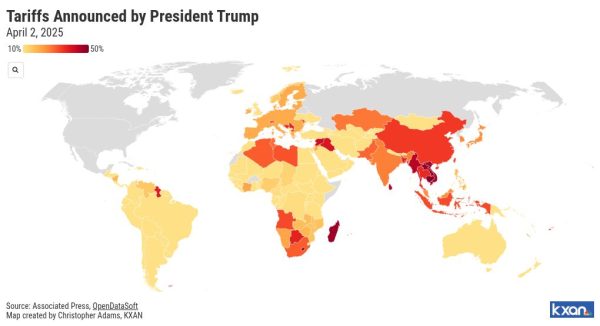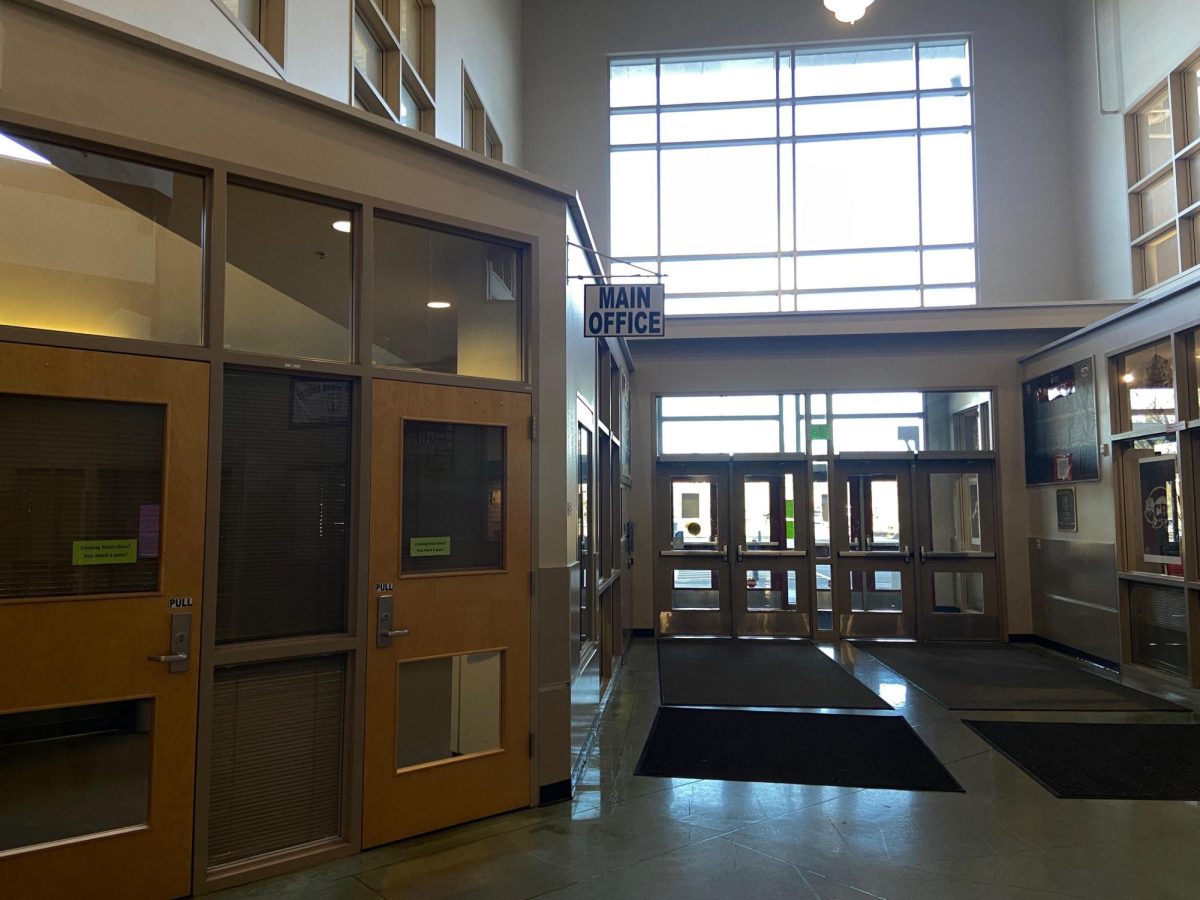In the months following the inauguration of President Donald Trump, the United States implemented sizable tariffs in dozens of countries.

Tariffs are a tax on imports, which makes it more expensive to get things from other countries. With the tariffs, it is likely the price of imported goods will go up because of the taxes and higher production costs. It also means that companies have some incentive to manufacture their goods in America, creating more jobs for Americans.
The big idea behind tariffs is to return manufacturing back to the home country. Companies like Nike, Amazon, and Apple have turned to other countries such as China and Vietnam for manufacturing because of cheap labor and lower production costs.
Several tariffs are to be implemented, but the ‘big ones’ were delayed for 90 days, with the exception of China.
“Part of it is just negotiations with other countries,” Camas High School (CHS) microeconomics and macroeconomics teacher Brady Miletich said. “The United States wants these tariffs as a bargaining chip,”
Additionally, Miletich said that immediately after these tariffs went into effect the stock market went down, suggesting that consumer and business confidence has sharply declined.
Miletich also said that lowering tariffs is a difficult undertaking once they have been increased, sometimes taking 15-20 years to reverse.
With the ongoing trade war between the United States and other countries, looming tariffs, and an unstable economy, many people are unsure of what is to come.

“We will not be able to make all of the cultural stuff that we normally make,” Caleb Caballero, a junior at CHS, said. “I’m from a Latino family and we make Latino food. It’s going to be harder to get those resources [because of the tariffs]”
Keegan Emberlin, one of Miletich’s students for both microeconomics and macroeconomics, said that they had learned about what could happen leading up to the tariffs.
“Whenever you have tariffs, you’re creating deadweight loss,” said Emberlin.
Deadweight loss occurs when a policy disrupts the equilibrium of a free market, resulting in an economic inefficiency. This reduces the overall welfare of an economy.
“I think we could enter a recession if the tariffs continue,” Emberlin said.
Trump recently said that he is in no hurry to reach trade agreements with other countries, meaning the tariffs will stick around for the foreseeable future. He claims the tariffs will make the United States a lot of money. In the meantime, the country waits anxiously to see if that will be the case.









































